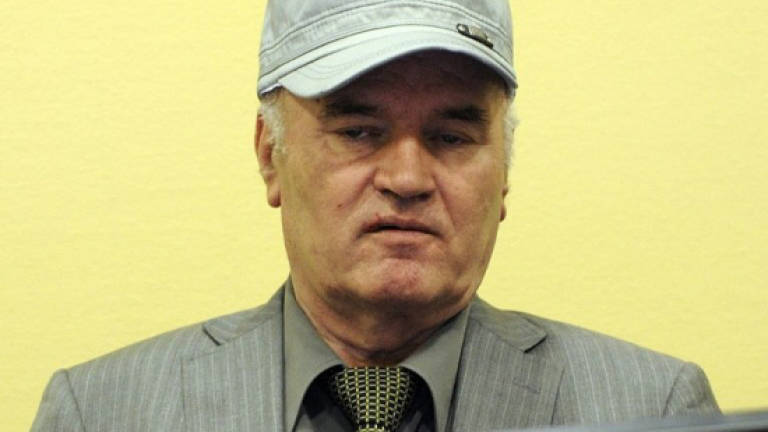The 1990s Balkans wars in key dates

FROM the death of Tito in 1980 to the independence of Kosovo in 2008, here is a timeline of the 1990s Balkans conflicts which tore the former Yugoslavia apart.
Bickering after Tito dies
Communist Yugoslavia, which emerged shortly after the end of World War II, was made up of six republics: Slovenia, Croatia, Serbia, Bosnia, Montenegro and Macedonia.
Following the death of its autocratic leader Josip Broz Tito in 1980, the Yugoslav federation found itself in crisis, with bickering between ethnic groups and surging nationalist sentiments.
By the time the Berlin Wall fell in 1989, inter-ethnic relations in Yugoslavia were at breaking point. The first multiparty elections in the republics in 1990 were won mostly by nationalists.
The most prosperous republics, Slovenia and Croatia, started advocating a greater decentralisation of Yugoslavia's government.
But the largest republic, Serbia, led by Slobodan Milosevic, rallied fellow Serbs throughout Yugoslavia in a push for centralised control.
Slovenia, Croatia independence
On June 25, 1991, the parliaments of Slovenia and Croatia declared independence, which led to the deployment of the Belgrade-controlled Yugoslav army (JNA) towards affected borders and airports.
After a 10-day conflict, the JNA withdrew from ethnically homogeneous Slovenia.
But in Croatia, Serbian troops sided with ethnic Serb rebels who opposed independence, launching what would become a four-year war in which 20,000 would be killed.
The eastern town of Vukovar was razed to the ground during a siege by Yugoslav forces in autumn 1991, while the medieval Adriatic town of Dubrovnik was severely damaged.
Bosnian referendum
Muslims and Croats in Bosnia, the most ethnically and religiously diverse republic and home to four million people, organised an independence referendum.
The move was fiercely opposed by Belgrade-backed Bosnian Serbs, who made up more than 30% of the population.
While Serbs boycotted the vote, 60% of Bosnia's citizens voted for independence.
Bosnian war
In April 1992 war broke out between Bosnia's Muslims and Croats, who were on one side, and Bosnian Serbs. Bosnia won international recognition a day later.
Led by Radovan Karadzic and armed by the JNA, the Serbs declared that territories under their control belonged to an entity called Republika Srpska.
Soon after, Bosnian Croats turned against the republic's Muslims.
Siege of Sarajevo
Bosnian Serb troops immediately started a siege of the Bosnian capital Sarajevo, which would last 44 months.
The city's 350,000 residents struggled to get basic necessities and at least 10,000 were killed by sniping and shelling by Serbs.
By May 1992 Bosnian Serbs controlled two-thirds of Bosnia.
Ethnic cleansing
In Augthe first images of skeletal prisoners in camps drew the world's attention to the campaign of ethnic cleansing by Serb forces.
An estimated 20,000 women, mostly Muslims, were raped.
Srebrenica massacre
In July 1995 Bosnian Serb forces took over the UN-protected "safe area" of Srebrenica in eastern Bosnia and massacred up to 8,000 Muslim men and boys.
Described by two international courts as genocide, the massacre was the worst mass killing in Europe since the end of World War II.
NATO strikes, Dayton agreement
In August 1995, after the fall of Srebrenica and the bombing of a Sarajevo market in which 41 people were killed, NATO unleashed air strikes on Bosnian Serb positions.
On November 21, 1995, following three weeks of talks in the US city of Dayton, Ohio, the leaders of Bosnia, Croatia and Serbia agreed to a peace deal.
In December 1995 a NATO peacekeeping force was deployed in Bosnia, which had been divided into a Muslim-Croat Federation, covering 51% of the territory, and a Serb entity, the Republika Srpska.
The Kosovo conflict
War then broke out in 1998 in Serbia's southern province of Kosovo between ethnic Albanian rebels seeking independence and Serbia's armed forces.
The fighting ended in 1999 after an 11-week bombing campaign by NATO, by which time some 13,000 people had been killed and hundreds of thousands had fled their homes.
Kosovo declared independence in 2008, a move Serbia refuses to recognise. — AFP